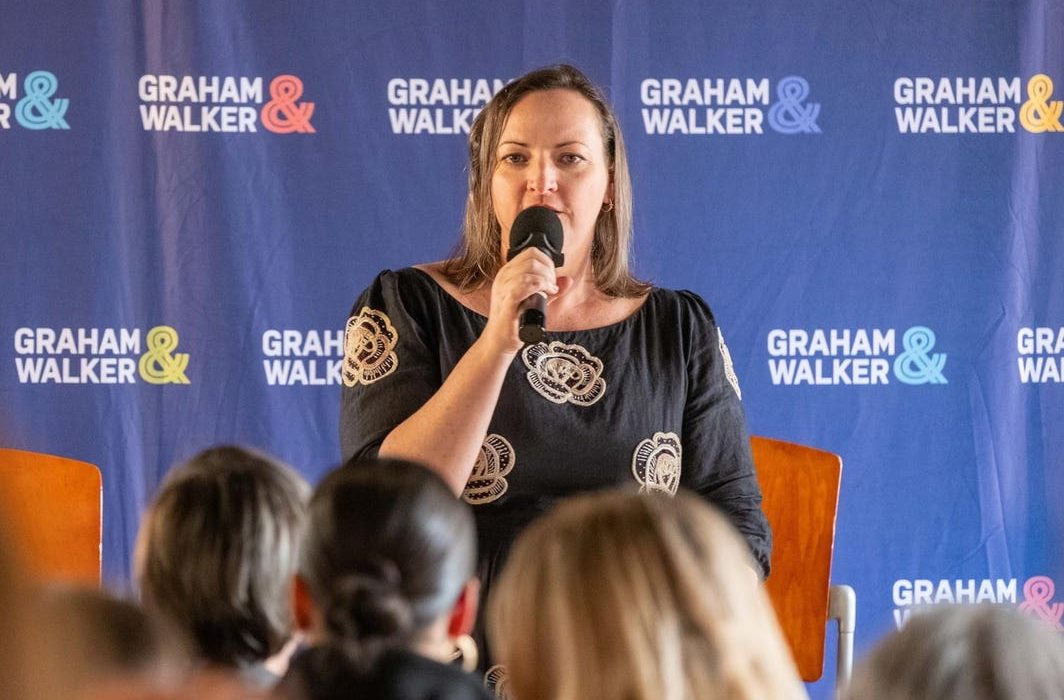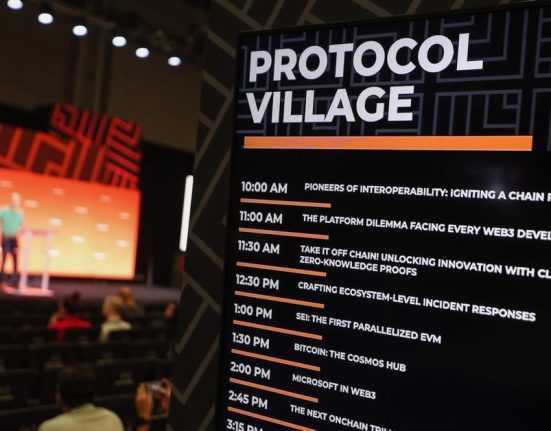Largely because there aren’t enough mental health practitioners practicing, physicians often end up treating their patients’ emotional problems. So, Arielle Radin Pulverman , a Ph.D. in health psychology, cofounded Bruin Health in 2021 to develop a software system aimed at helping doctors provide better behavioral healthcare for those individuals. It took a while to pinpoint the exact issue to address, along with developing the technology, but by June of this year, they were ready for primetime.
Andrew DiMichele and Arielle Radin Pulverman
Bruin Health
But although Andrew Di Michele, her fellow founder, had previous entrepreneurial experience, Radin Pulverman had none—and she knew that being a female founder would make the process of fundraising even harder than it would be if she were a man. That’s why she applied to Catalyst, a two-week accelerator for female founders that helps women understand the inside secrets of finding investment dollars.
For example, during a workshop on VC bias, she learned that investors tend to ask women more negative, “prevention”-oriented questions than positive “promotion”-oriented ones and developed tactics for how to turn her answers into an upbeat sales pitch, rather than playing defense. “The experience of female founders is very different from men and preparing women requires expertise and an understanding of what that experience is like,” she says.
She’s now raising money and her first investor was Graham & Walker, a VC firm focused on female founders that runs Catalyst.
Bruin Health is one of 38 startups funded by Graham & Walker, the brainchild of Leslie Feinzaig, who first formed the Female Founders Alliance in 2017 to help female founders raise money when she had trouble finding investors for her own startup. A few years later, she took that effort to the next level by turning it into her own VC fund aimed at women-founded startups. “I realized that, if I was going to keep working to make other companies successful, then I needed to start investing in them,” she says. She’s invested about two-thirds of the just under $10 million fund so far.
Tackling a Lack of Funding
It all started when, after working in leadership positions at two startups, Feinzaig decided to launch an edtech gaming business. In short order, she came face to face with a problem facing many other women founders—investors weren’t interested in giving her funding, or even providing feedback. When PitchBook came out with a report that female founders got just 2% of VC funding, Feinzaig vowed to do something about the problem other than simply launching her own company.
Leslie Feinzaig
Graham & Walker
Her first move was to start a Facebook group for female founders, then launching a monthly meetup with investors. In a few months, membership went from 25 to 100 founders. In 2018, she officially formed Female Founders Alliance, with funding from corporate sponsors such as AWS for Startups, Cooley, Silicon Valley Bank, Antares Capital, and Seattle Bank.
An Accelerator and Other Activities
The lynchpin of activity was a six-week accelerator, but with a big difference from the others in existence at the time: It was aimed at women with busy lives and obligations who couldn’t pack up and move to Silicon Valley for months at a time. That meant it was virtual, except for one week in-person in Seattle, where the organization also provided childcare.
After four years, Feinzaig changed the length to just two weeks, for twice as many companies as before, with a heavy emphasis on a few areas. One was helping founders, she says, “to start thinking and talking like insiders—decoding what is happening and giving them a massive leg up.” Another was mentorship from insiders with whom women could build relationships and who act as a referral to investors. Last was developing a bond of trust with other founders.
Total number of companies that have participated: 75, founded or cofounded and majority-owned by women. They’ve raised an average of $600,000 within a few months of finishing the program.
Now there also are pop-up conferences on funding readiness with about 20 local investors and subject matter experts held in different cities around the country; Unlike Catalyst, founders don’t need to be selected to attend. The Facebook group has morphed into a Slack channel. More than 4,000 companies are part of the community.
Evolving to the Next Level
Feinzaig’s next step was to become an investor. “It was a natural evolution of what I was already doing,” she says. So she rebranded Female Founders Alliance to Graham & Walker—named after Washington Post CEO Katharine Graham and self-made millionaire Madam C.J. Walker—and embarked on a fundraising effort to form a VC fund. That ended up being a two-year process. Feinzaig raised just under $10 million from corporations, one startup, and high net-worth individuals and families, and officially announced the fund in 2021.
The focus is on early-stage tech companies targeting the future of work, health, caregiving, and what Feinzaig calls “change,” or everything from climate change to AI. The average investment size is $200,000.
Other investments include Seven Starling, which provides access to therapists, peer support, and, if needed, medication for women experiencing anxiety or depression in the perinatal period. Tokki sells reusable gift bags made from cotton or recycled plastic bottles. There’s also a scannable QR code on the band, which recipients can use to access messages, photo or video from the gift giver. Dorian, an interactive storytelling platform, lets fiction writers turn their stories into choose-your-own-adventure mobile games. Users spend in-app currency to get access to different story lines, with part of the payment going to the authors.







